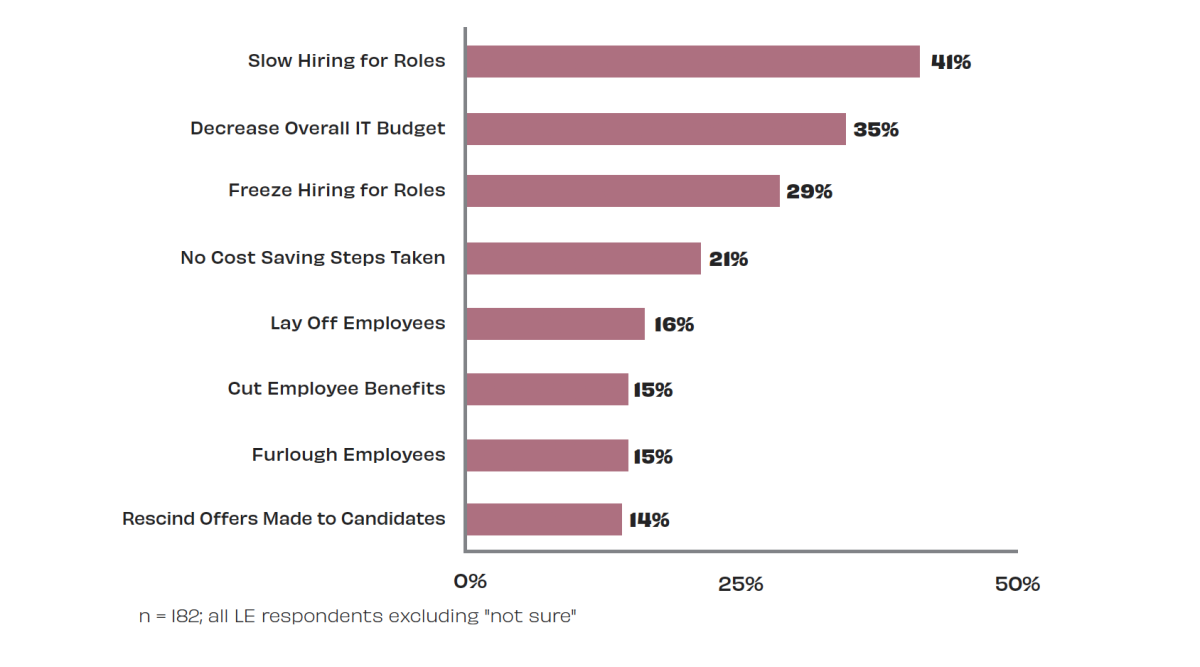Large Enterprise CIOs Expect to Grow Their IT Team to Meet Critical Demands in 2023

- Share via
Eighty-one percent of large enterprise (LE) CIOs plan to increase their IT headcount in 2023, according to a recent survey by Gartner, Inc. Only 14% expect their IT staff to decrease and 5% expect their headcount to remain the same.
“Attracting and retaining technology talent remain critical areas of concern for CIOs,” said Jose Ramirez, senior principal analyst at Gartner. “Even with advances in AI, Gartner predicts that the global job impact will be neutral in the next several years due to enterprise adoption lags, implementation times, and learning curves.”
Only 4% of CIOs surveyed reported AI-augmented work as a resource producing technology work today.
The Gartner survey was conducted from October through November of 2022 among 501 respondents, 182 of which were LE CIOs in North America, EMEA, and APAC region. The LE segment consists of enterprises with a total annual revenue of $1 billion or more.
Why CIOs Plan to Increase IT Headcount in 2023
“Enterprises have undertaken various digital initiatives over the past two years, with operational excellence and customer or citizen experience being the most popular,” said Ramirez. “Still, these initiatives often do not meet enterprise needs quickly enough.” Sixty-seven percent of LE CIOs plan to grow their IT headcount in 2023 by at least 10% to support their enterprise’s digital initiatives.
While CIOs are looking to expand their IT teams, many have faced roadblocks in hiring due to economic conditions. Due to prevailing economic volatility, 41% of LE CIOs report slow hiring for IT roles, 35% report decreasing overall IT budget, and 29% report an IT hiring freeze.
“CIOs are taking proactive steps to combat economic volatility by relaxing geographic and role requirements to expand their IT talent pipeline,” said Ramirez.
“Some organizations have found success by hiring early-career technologists and providing upskilling opportunities to fill critical technology needs.”
The survey also found that full-time equivalents (FTEs) do the majority of tech work in the enterprise. Full-time IT employees perform 56% of the work, while technology advancements such as automation and AI-augmented work account for just over 9% of work today.